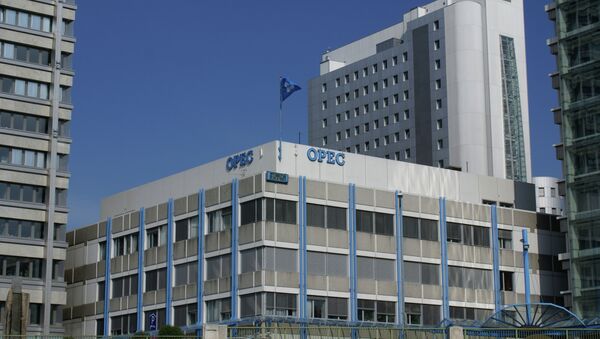Saudi Oil Minister Khalid al-Falih said that OPEC may change its role in the global crude market and abandon its traditional regulatory mechanism through adjusting output, The New York Times reported.
The minister added that the oil exporters should give the market the ability to set fair oil prices while the previous mechanism may never recover.
Thus, the organization violates Article 2 of its Statute saying that OPEC shall devise ways and means of ensuring the stabilization of prices in the global oil market. This is what quotas are for. However, OPEC members have long ignored quotas, opting to increase output.
OPEC never officially announced the end of using quotas. But the words by the Saudi minister were the first signal. His announcement could mean that Riyadh is going to seriously change the role of OPEC in the crude market.
For many years, Saudi Arabia regulated the market almost single-handedly. It had sufficient production capabilities and caul balance the market.
Usually, the policy was successful. But during the 1980s oil crisis, when the market was oversupplied with crude, in a bid to stabilize prices Riyadh decreased output threefold, from 10 million barrels a day in 1980 to three million in 1985.
Now Saudi Arabia risks repeating the same mistake. Many experts say that US shale oil companies have decreased the break-even point to $50 a barrel. This means that output will rise as soon as oil prices stabilize at $50 or higher.
It looks like Saudi Arabia will not decrease output and is ready to ruin OPEC because of American shale oil firms, an article in the Russian online newspaper Vzglyad read.
"It seems that the OPEC countries have held their meeting only because of the US shale boom. OPEC’s strategy to squeeze US firms from the market is working, so there is no need to freeze output," analyst Mark Goykhman ironically noted.
"OPEC meetings make no sense anymore. The cartel cannot make key decisions to influence the market," analyst Ivan Andrievsky told Vzglyad.
In an interview with Argus Media, al-Falih assumed that now OPEC’s main regulating tool is inaction.
The strategy is effective and will prove its effectiveness in the long-term, and prices will gradually rise to fair levels, he said.
The main factor affecting oil prices is the supply-demand balance. In addition, there are a number of possible force-majeure factors, including wars, political crises and economic crises. The global crude market is now less affected by OPEC meetings.
Last Friday, OPEC held its recent meeting which gave no results. However, the market has been stable, with Brent crude hovering near $50 a barrel. Market players have positive expectations.
The market environment was dominated by stats data from the US. Oil stocks in the US decreased last week by 1.37 million barrels, according to the Energy Department. Output dropped by 0.36 percent, or 32.000 barrels a day, to 8.735 million barrels a day.
"The fact that OPEC has failed to reach an agreement for several times would not have a negative effect on the market. Moreover, the prognosis is that the market will balance by the end of the year," Ekaterina Krylova, senior analyst at Promsvyazbank, said.
The first one is a drop in US oil output. Second, despite the fact that OPEC will increase its output it will control production. As a result, there will be no significant increase in its output. It is expected to grow to 33.3 million barrels a day, from the current 32.5 million.
On the other hand, Asian countries, particularly India, will increase consumption of oil.
"As a result, we expect that the average daily supply this year will reach 96 million barrels while the average demand for crude will be 95.14 million barrels a day," she said.
According to a report by Promsvyazbank, in the second quarter of 2016 average oil prices will reach $48-50 a barrel. Some analysts expect than Brent may reach $53 a barrel.
At the same time, the stabilization in the market may not be long. Supply may soon surpass demand and there may be a new shock in the global market, John Harju, an energy analyst at the University of North Dakota, said.




